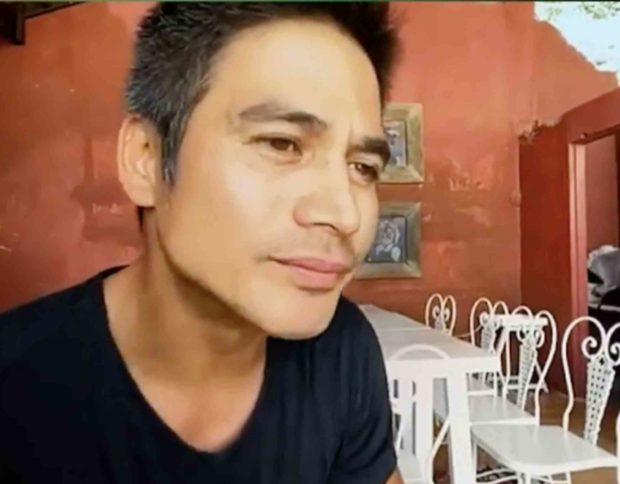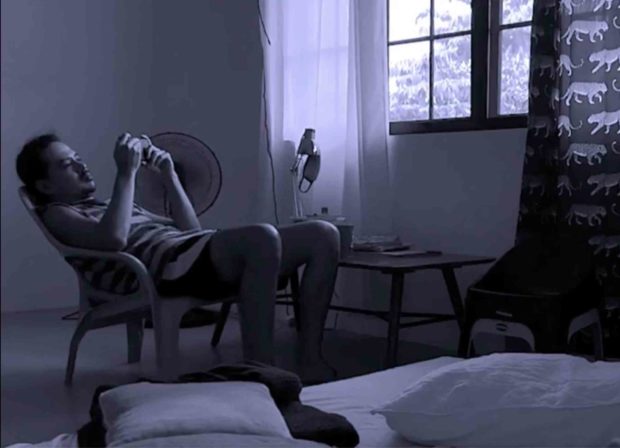Star-studded ‘Gabi ng Himala’ targets plight of film workers affected by pandemic

Panel discussion: (From left, upper row) Bianca Gonzalez-Intal, Ryan Agoncillo and Nora Aunor;
and (below) Charo Santos-Concio, Ricky Lee and Joel Lamangan
Just like the screenplay of “Himala,” which remains relevant 38 years after he wrote it, screenwriter Ricky Lee said the Filipino people “will endure and prevail as human beings” when their battle against the pandemic ends.
The digitally restored version of Ishmael Bernal’s 1982 drama, starring Nora Aunor, was given tribute on Tuesday night in an online fundraising show, titled “Gabi ng Himala: Mga Awit at Kwento,” to help low-income film workers affected by the temporary stoppage of film production due to the new coronavirus disease (Covid-19) pandemic.
The event was organized by Lockdown Cinema Club, in cooperation with ABS-CBN’s Film Restoration group, Star Cinema and Ricky Lee Film Scriptwriting Workshop.
“It is important to keep telling stories for us to make sense of what’s happening,” Lee said, adding that “sadly, the things I saw 38 years ago while writing ‘Himala,’ I’m still seeing today—poverty, oppression and desperation.”
He added: “We’re still committing the same mistakes—thinking that we should all leave everything to God, that it’s OK to do nothing and simply trust that He will make things better for us.”
The beneficiaries of “Gabi ng Himala: Mga Awit at Kwento” are utility men, drivers, carpenters, set men, electricians, grips, personal assistants and other members of the production staff who used to earn on a per-day basis, but lost their jobs during the lockdown.
“Let’s think of them when we make our donations,” said Aunor during the online panel discussion facilitated by Bianca Gonzalez-Intal and Ryan Agoncillo. “Love and peace should reign in our hearts, especially now that this is happening to us.”
Also part of the panel discussion were Lee, actor-film producer Charo Santos-Concio and actor-filmmaker Joel Lamangan.
Lamangan, who was part of “Himala” as an assistant director, crowd director and actor, said the film is considered timeless because “its theme is still applicable to the present time. It signifies the same plea of the people at any period. Similar to when the film was made, we feel uncertainty today because the government cannot tell us when we will be able to return to our jobs.”
“Sadly, art and culture are not considered essential industries in this country—unlike the food industry—even though what we offer is actually food for the soul,” Lamangan pointed out. “I believe that we are essential because we are always part of history. We are equally as important. This thinking has to change.”
Concio, who bankrolled “Himala” under the production company called Experimental Cinema of the Philippines, echoed Lamangan’s feeling of disquiet. “As to when everything will normalize, we still don’t know. We have yet to come up with a vaccine for the disease,” she pointed out. “But our storytelling should not stop. We might not be able to show films in cinemas anymore, but there are other platforms now. We should learn to innovate.”
She added: “There will be a new normal for us. This thought shouldn’t hinder us from being able to express what’s in our soul. We should learn from the lessons of the previous pandemics. The boldest and most artistic solutions were the ones that made it.”
Aicelle Santos-Zambrano opened the show with a performance of “Walang Himala,” from “Himala: The Musical,” where she also played Elsa. The said production was also written by Lee.
Lea Salonga did her version of “Gawin Mo Akong Sining” during the middle part of the show, while Bituin Escalante concluded the program with “Uyayi ng Ina.”
Another highlight of the show was the “reimagining” of some of the iconic scenes in the movie.
Dingdong Dantes directed his wife, Marian Rivera, as Elsa who gets shot while delivering an impassioned speech on top of a mountain to a huge crowd. The couple also did a modern take on the same scene. This time, with Marian as an OFW (overseas Filipino worker) admitting to her family in the Philippines that she is sick with the virus.
Doing their versions of the same scene were Iyah Mina, directed by Sigrid Andrea Bernardo; Nadine Lustre, directed by Jefferson Vargas; and Jericho Rosales, directed by Dan Villegas.
Under the direction of Joyce Bernal, Piolo Pascual played the documentarist Orly (originally performed by the late character actor Spanky Manican), who interviewed Jodi Sta. Maria as Elsa.
Tom Rodriguez, under Ricky Davao’s direction, played the priest character that was originally portrayed by Lamangan.
Meanwhile, Angelica Panganiban portrayed the character Nimia (Gigi Dueñas/Gigi de Beaupré in the movie) opposite Maja Salvador as Elsa. They were directed by Olivia Lamasan, ABS-CBN’s creative department head.
Also screened was multiawarded indie filmmaker Lav Diaz’s “Himala: Isang Diyalektika ng Ating Panahon,” which featured artists Agot Isidro, Raymond Bagatsing, Pinky Amador, Shaina Magdayao and John Lloyd Cruz, among others.
“Let’s continue looking for solutions,” declared Concio. “’Di pwedeng bahala na. Life will not stop because of the pandemic. We should emerge as better people from the experience.”
For more news about the novel coronavirus click here.
What you need to know about Coronavirus.
For more information on COVID-19, call the DOH Hotline: (02) 86517800 local 1149/1150.
The Inquirer Foundation supports our healthcare frontliners and is still accepting cash donations to be deposited at Banco de Oro (BDO) current account #007960018860 or donate through PayMaya using this link.




